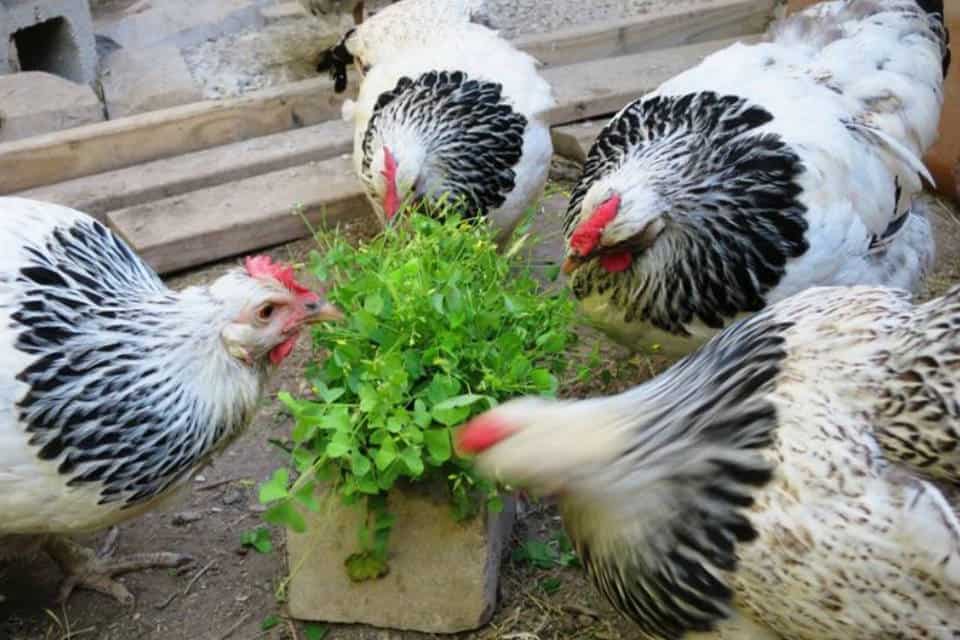Chicken health is an important matter when it comes to raising chickens. While chickens can seem hardy and uncomplicated, they still require proper care, providence, and maintenance. In other words, it’s essential to answer food-related questions about whether they can or can’t eat a particular ingredient. So, can chickens eat clover?
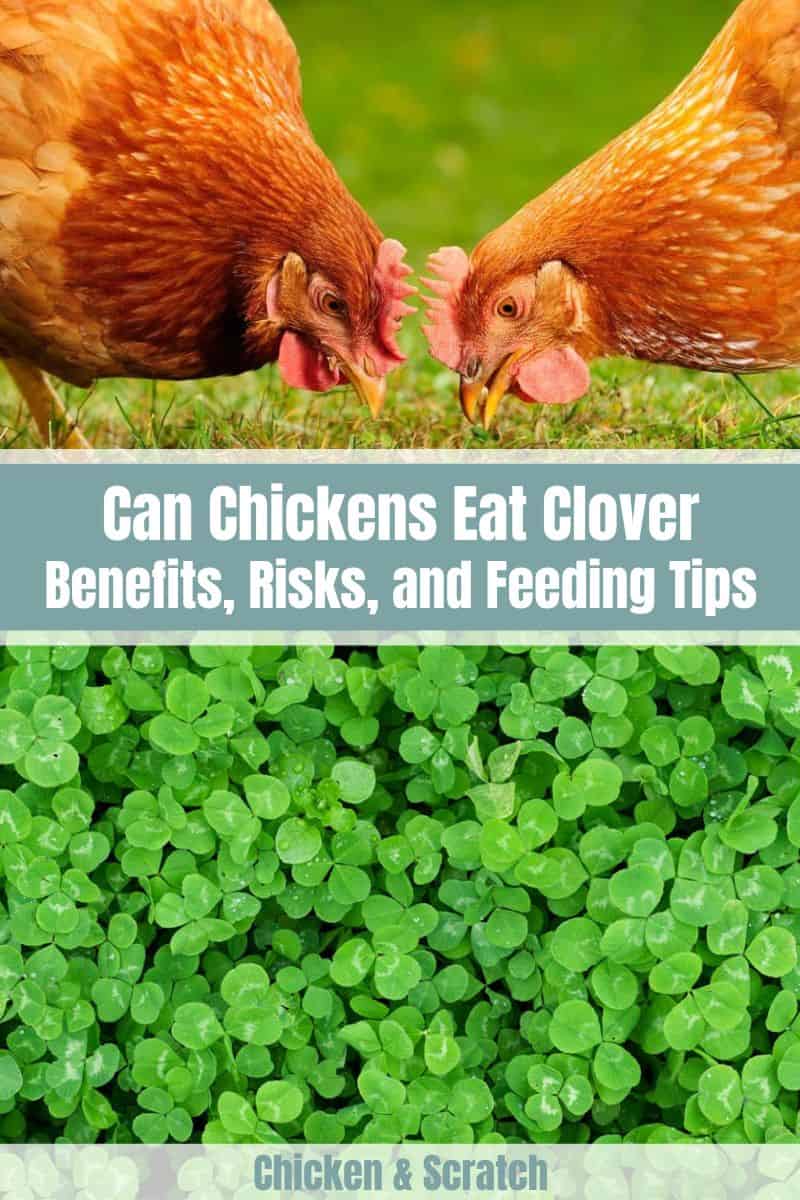
Introducing Clover
You must have known what clover is back when you were younger. One of the more famous clover types has been famous for being a lucky charm. In other words, when you find a four-leafed clover.
In general, a clover is considered a herb and is one of those with a short lifespan. They have alternate and compound leaves. These leaves are usually just three, but there are rare incidences when you find a clover with four leaves. This is why clovers with four leaves are considered lucky, primarily because they are hard to find.
“Clover” is the more usual term used to refer to Trifolium and the Fabaceae family. This family of herbs is home to about 300 or more leguminous plants. You can find clovers propagated in locations with temperate climates and subtropical locations all over the world. Because clovers are easy to grow, they can help in many ways.
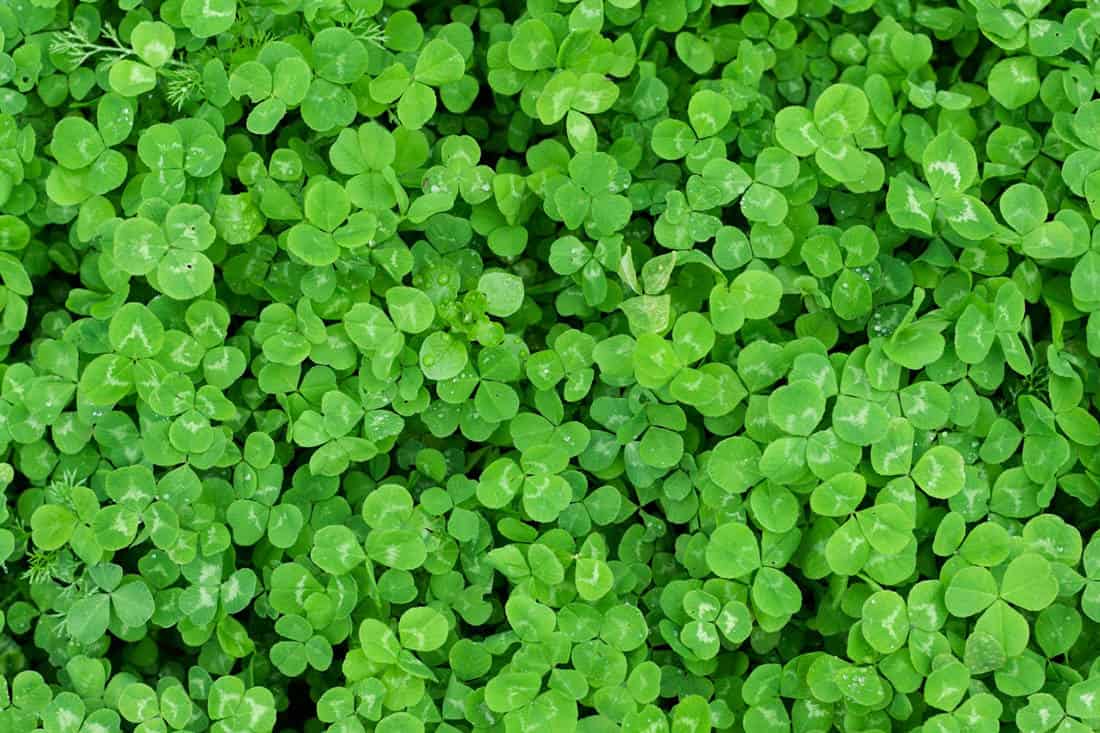
Cover crop
A cover crop is a plant that grows faster than other plants. Several familiar plants have these characteristics, like buckwheat, vetch, and many more. These plants are propagated to help avoid soil erosion and add to the organic matter in the soil.
Clovers grow fast and spread quickly, so using them as a soil erosion shield is an excellent idea. Thus, they are also called a cover crop, in the sense that they cover an area of soil along with the other mentioned objectives and benefits.
Livestock feed
Because they are low maintenance and easy to grow and spread, clovers are also ideal for livestock feed, forage, and hay.
As mentioned earlier, clovers are used as forage, livestock feed, and hay. This means clovers are very much safe for chickens. Consequently, chickens love eating clovers as they are not only tasty and offer good texture, but they also have a crisp green color that’s visually appealing to chickens.
Chickens enjoy their food visually. They are more likely to eat something that looks good rather than choose something that could be better tasting. They have good eyesight, and it is an advantage to feed them with something visually pleasing.
Clover is also healthy for your chickens, apart from being easy to grow and visually pretty. They are usually used as substitutes to forage whenever there is a shortage of grass in the area or whenever chickens want something new.
There is more than one type of clover in reality, and what you might have in mind as “clover” is not the only one out there. Some of the most common types of clover include white, red, and purple. Their names and colors might differ, but the nutritional value is very similar.
Health Benefits of Clover
Calcium
This is one of the essential nutrients your chicken should consume. Calcium helps with their proper growth. On the other hand, calcium is vital in producing solid and good eggshells.
Niacin
Niacin helps reduce crude fat content in your flock’s meat. This nutrient is also suitable for reducing cholesterol, making your chickens healthier, and leaning to the low-fat category when turning them into the chicken meat.
Potassium
Potassium is a good nutrient helping chickens continue their typical laying performance, and this nutrient helps them maintain their healthy egg production season, weight, and even shell thickness. For people who raise chicken for their eggs, potassium is vital to keep and maintain good quality eggs from healthy hens.
Vitamin A
Vitamin A is one of the essential vitamins needed by chickens, and it helps maintain their epithelial cells and good quality eggshell condition. When raising chickens for eggs and meat, it’s also vital that you keep their reproductive system healthy, and vitamin A is one of the primary nutrients that keep their reproductive health. Vitamin A increases egg production.
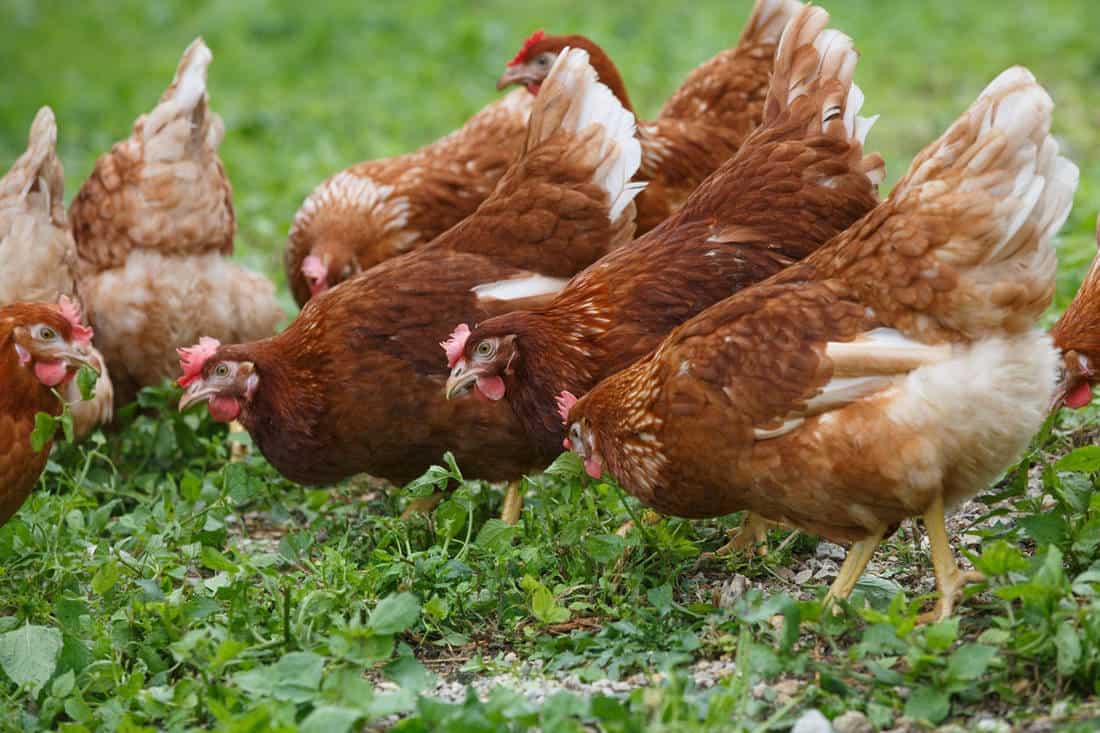
Vitamin B
Vitamin B helps reduce chicken’s high mortality rates, which also helps prevent slow growth, usually caused by folic acid deficiency. Vitamin B also ensures your chicken’s muscles are growing consistently and healthily.
Iron
Iron is one of the essential nutrients as it helps transport oxygen and electrons throughout your chicken’s body, which also has a prominent role in your chicken’s DNA synthesis.
Protein
Again, protein is essential for poultry, especially in their growth, egg production, and immunity. Protein also helps improve how your chickens adapt to their environment. In short, protein helps keep your chickens hardy and able to withstand a wide range of environmental types.
More About Clovers And Their Effect on Chickens
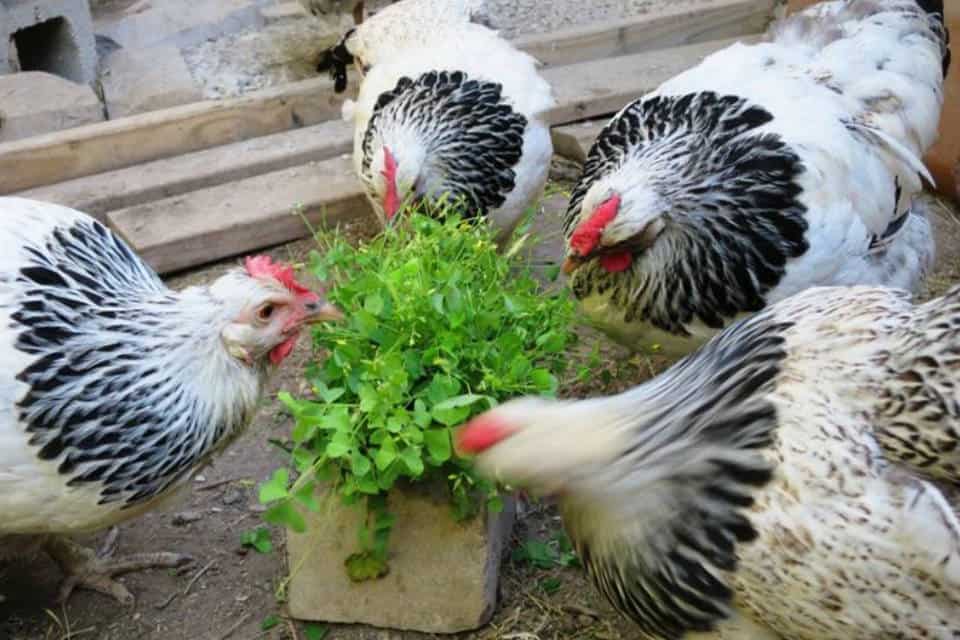
Clovers are usually packed with good things for your chickens. While they should not be the entirety of your chicken’s diet, they have many good things to offer your chickens.
When chickens consume clovers, they allow themselves to get detoxified as clovers are natural detoxifiers helping eliminate toxins and improve their health as a whole. There is more to clovers than just luck!
These babies also help stimulate the digestive system and the liver, allowing them to work more efficiently and healthily. Another great thing about feeding chicken clovers is that it improves your poultry’s overall holistic well-being as they are also leading agents in improving the circulatory and respiratory systems.
However, you may have read stuff warning poultry owners against feeding clovers to chickens. These readings are also valid but are often taken out of context. Clovers contain coumarin, which supposedly helps in better blood flow, and healthier blood pressure levels.
However, in certain conditions, clovers can be toxic to chicken. This condition is precisely when a clover starts to get moldy in the presence of a particular fungus. When these conditions arise, the coumarin in the clovers will become a toxin. This toxin now becomes dangerous to chickens as they are known to cause hemorrhaging.
This threat usually arises and is made more possible by cutting up clovers and mixing them up with hay that’s supposed to feed livestock. These conditions make the sliced clovers vulnerable to fungi growth. Otherwise, clover becoming toxic to chickens is rare. Toxic clovers are unlikely when chickens are in their normal grazing conditions.
Clovers can also affect a chicken’s reproductive system when consumed in large amounts. On the other hand, clovers consumed in ample amounts are okay and can be a part of your chicken’s diverse diet of weeds and grasses. In general, too much of anything does have adverse effects.
All in all, clovers are a great addition to your flock’s diet. They are relatively easy to find, and they grow pretty fast too. In short, they are easy to propagate, so there’s no need for too much effort in putting clovers in your chicken’s diet.
More Weeds Your Chickens Might Like
While clovers are good for chickens in moderation, it’s important to note that researching is also needed when feeding your chickens new things. Some types of clover can cause digestive problems to your chickens, so it’s best to look into the type of clover before making it a part of your chickens’ diet.
If you are still looking for more weeds you can feed your chickens, here are some relatively common weeds you can make a part of your flock’s diet.
Chickweed
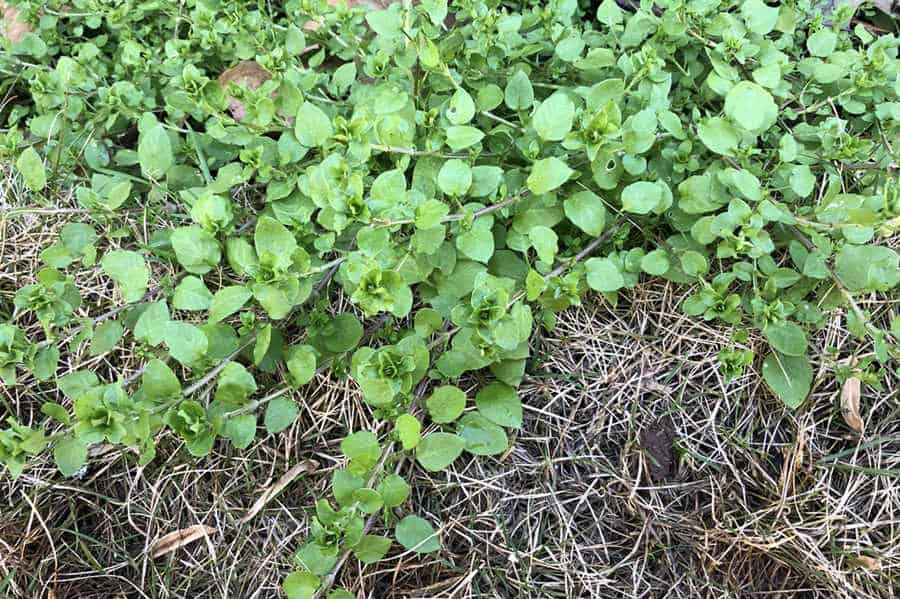
Judging from the name, it’s evident that this weed is something a chicken can eat. This type of weed is a great pain reliever and has stress-relieving qualities that are very helpful for laying hens and chickens in distress. Chickweed is also okay for baby chicken consumption and a great way to add diversity to their daily diet.
Dandelions
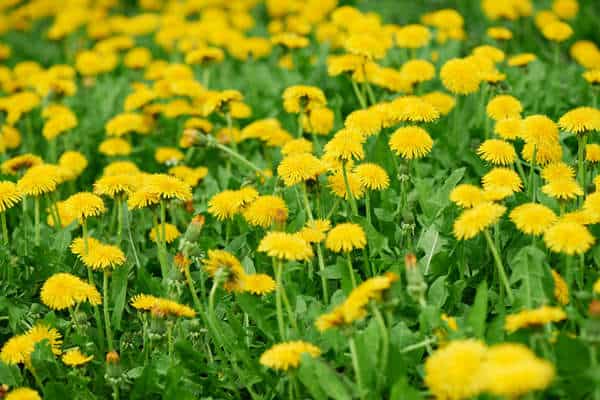
Dandelion flowers are pretty and can decorate your garden; the leaves can go to a portion of your chicken’s diet. They are rich in calcium and vitamin C. The flowers are edible for your chicken, too, but you can keep them in your garden and give the leaves to the flock if you want. Chickens love snacking on dandelions, so it’s an excellent plant to try to add to your chicken diet menu.
Nettles
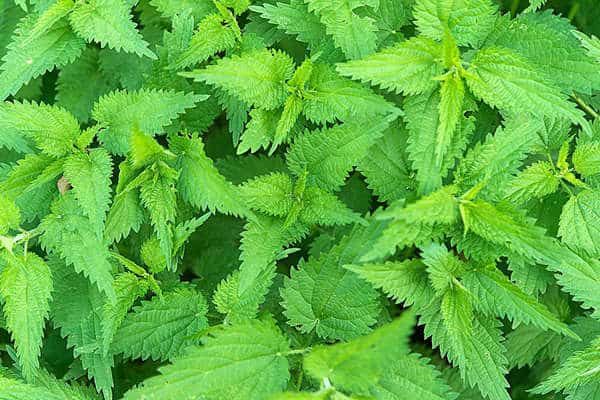
Nettles are plants that like to grow on rich soils; soils that are taken well care of and perhaps, cultivated to grow plants. The leaves of these plants are rich in necessary minerals that contribute significantly to your chicken’s strength and growth.
Leaves from nettles are also ideal for salads. If you want to spice up their meals, you can make them a salad and add some nettles into the dish too.
Purslane
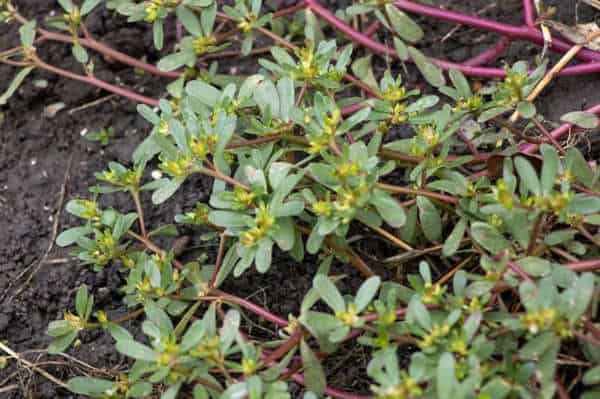
This plant is easy to find and grow if you prefer. They thrive in almost any type of soil and level of temperature. They can live in the shade, in the sun, on stones, on walls, and so on. Purslanes are spontaneous, which is one reason why they are charming.
Purslane contains omega-3, one of the necessary nutrients for chickens that are rarely found in other types of chicken food. In addition, purslane is also rich in other good nutrients for your chicken.
Summary
Can chickens eat clover? The answer is yes and no, which is very much healthy and helpful for your flock in typical grazing situations. Nevertheless, whatever new food you would like to introduce to your chicken, gathering information or asking an expert before putting it into your chicken’s diet is essential.
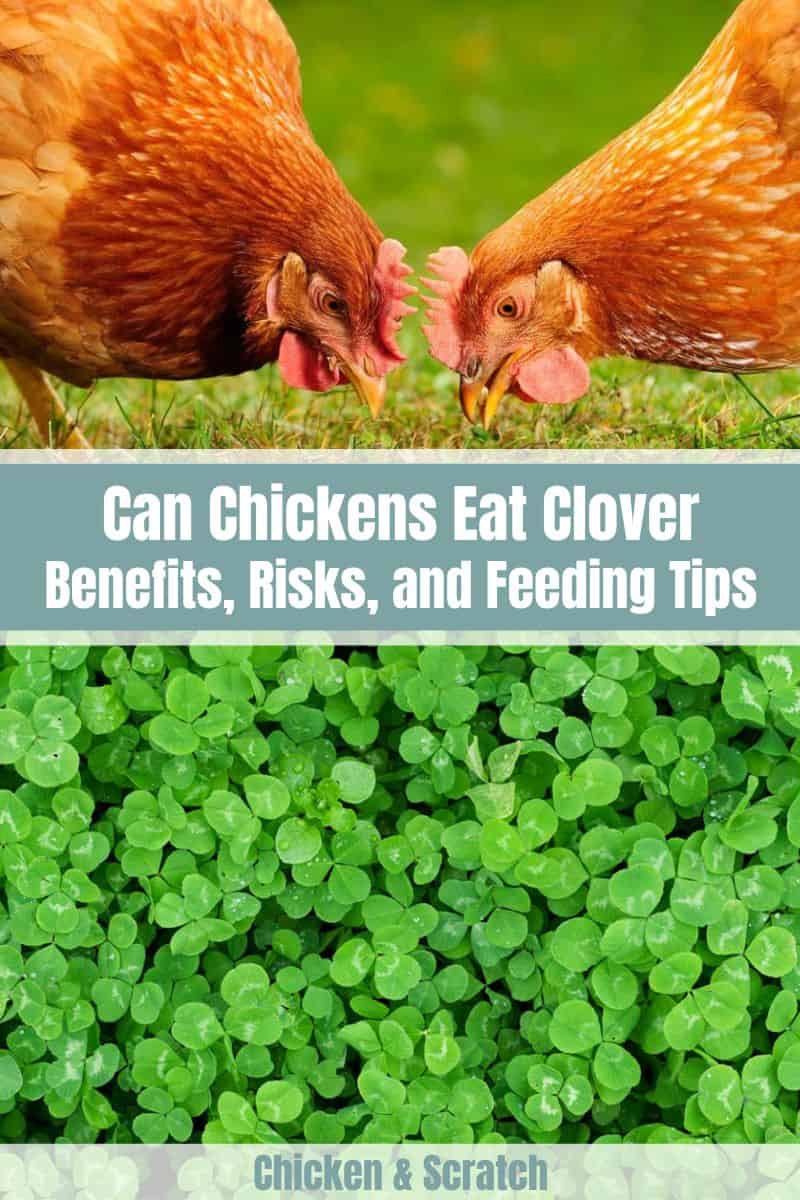

Joseph Hudson has been raising chickens for over 15 years. In 2018, he completed the Agriculture & Natural Resources program at Mt. San Antonio College. He currently raises over 1400 chickens on his 7.5-hectare farm. He keeps sharing his experience on raising healthy and happy chickens on Chicken Scratch The Foundry.
